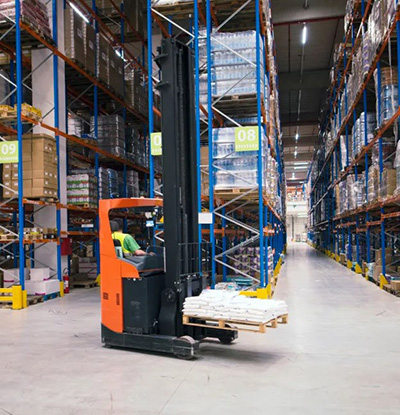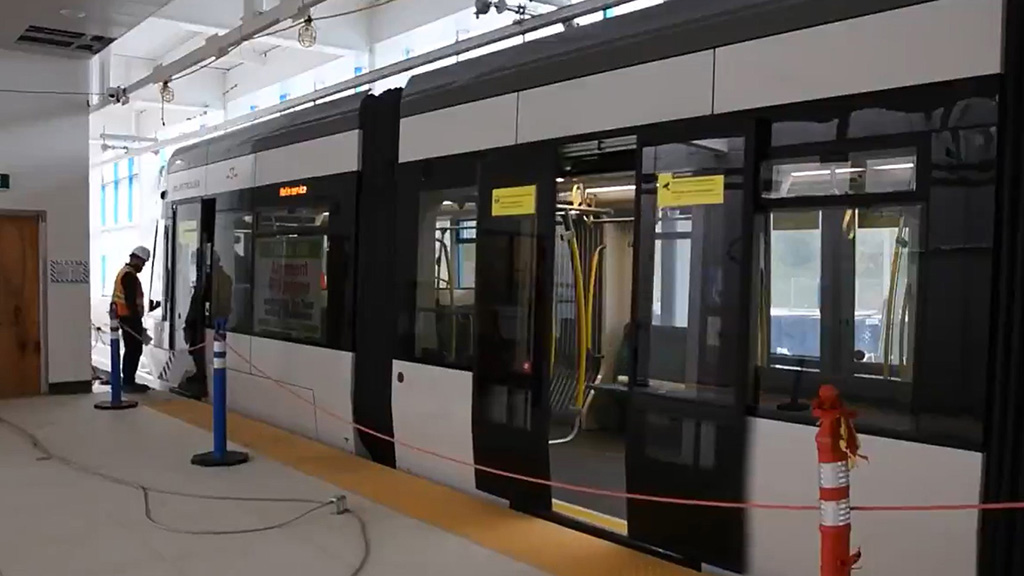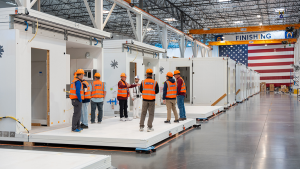Dramatic changes in the warehousing sector and supply chain logistics in the past five years have not only kept construction companies busy building warehouses but also scrambling for solutions to securing, shipping and storing materials.
ConstructConnect chief economist Alex Carrick differentiates between two significant but different trends on the construction project side.
First, he said, in both Canada and the U.S., the biggest influence on the construction of warehouses over the past decade has been the building of large distribution centres to fulfill retail purchase orders placed over the Internet.
Second, in the wake of logistics disruptions caused by the pandemic, global tensions and other causes, managers in the manufacturing sector in the U.S. and Canada have concluded a more secure course of action for their businesses would be to expand inventory capacity at home.
“The dollar volume of warehouse construction starts in Canada has increased by half again — up 52.9 per cent — over the past five years and is ahead by a factor of four compared with 10 years ago,” stated Carrick. “The increase in U.S. warehouse starts, with a dip occurring last year, has been even more dramatic.”
New model emerges
A third trend attracting notice in the construction and other sectors has been supply chain optimization. As firms have addressed supply chain problems, a new service model has arisen due to the need for third-party logistics suppliers to service construction and other companies needing storage space for materials and logistical help in transporting materials to and from jobsites.

Among the newer Canadian storage and logistics suppliers serving construction and other sectors is FlexSpace Logistics, a division of StorageVault Canada, one of Canada’s largest self-storage providers. FlexSpace was founded in 2021.
“We all know the world’s getting to a place where everyone’s got more product. We just have stuff and not enough space for it,” said Lucas Koren, business leader at FlexSpace. “Whether it’s business or personal, people need to put their stuff somewhere. So it just naturally has led to a huge growth in the sector.”
Two major projects in FlexSpace’s portfolio have been Toronto’s Eglinton Crosstown LRT Line, collaborating with Crosslinx Transit Solutions, and the renovation of the Rogers Centre in Toronto.
In the face of project delays, Crosslinx needed to store extra-large equipment and maintain access to it, explained Koren.
But most of their warehouse options required a three- to five-year lease. FlexSpace was able to offer Crosslinx storage on month-to-month contracts at a site in Etobicoke that was able to accommodate the flexible space needs Crosslinx had over time.
“They were only paying for the amount of space in the warehouse that they were taking up. A deal first started where they were taking up the full 26,000-square-foot warehouse as they shipped the product out…we were charging them based on the new square footage they were taking, so not only flexible start and end dates, they also had the flexibility of only being charged for the amount of space they were taking.”
Playing ball with Rogers
With the Rogers Centre, materials needed to be packaged, moved and stored.
“We provided the trucking, the actual trucks to be onsite, and the warehouse facility as well as some strategic discussions on how best to go about storing the product,” said Koren.
A key to FlexSpace’s business model is that it has access to some 200 facilities its parent company operates across the country, and beyond that it sets up deals to access other storage facilities, specialty forklifts, trucking and logistics workers, even commercial real estate firms, to come up with storage and logistical deals.
Koren said the logistical options it can provide, using in-house resources and partnering with other suppliers, is virtually unlimited.
One company simply needed five acres of vacant land for two years and FlexSpace was able to work its network and offer a month-by-month contract in case the project ran late or ended early. Another needed a place to store 40,000 square feet of steel.
“That’s always an interesting one because steel is so heavy, you need very specialized, heavy-duty machinery,” said Koren.
“We have found a little niche. This flexibility we’re offering is where these construction companies are seeing huge value because it lets them strategize and plan better.”
Follow the author on X/Twitter @DonWall_DCN.




Recent Comments